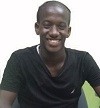A Trek back to our Roots
My introduction to ESRA was back in 1998, as a new immigrant. Merle Guttmann, ESRA's founder, Hon. Life President and editor of this excellent magazine invited me to join her, to see some of the community programs with which ESRA was involved. The program that most resonated with me was a project for Ethiopian Israeli parents and their children, which endeavored to encourage the children to take pride in their Ethiopian background. A gap was beginning to develop between these generations - the parents preferred to speak in their native language Amharic, but their children wanted to be like other Israeli children, who spoke only Hebrew.
The language barrier brought back memories of my own childhood, where my Booba (grandmother), who lived with us, never learned to speak English. She had come to Britain in the early part of the 20th century, originating from Bialystok, which, at that time was part of the Russian Empire. Booba only spoke Yiddish and never came to terms with the fact that my Jewish friends could not speak her language. I suffered many an embarrassing moment when she said – fortunately in Yiddish – "Tell your friends to go – if they can't speak Yiddish then they can't be Jewish!"
Today, as part of the Israeli school curriculum, pupils are encouraged to speak to their grandparents, in order to find out about their roots. Our grandchildren were particularly interested in hearing about my husband's childhood in Germany, where at the age of 10, he had witnessed the Kristalnacht torching of his synagogue of which his father was the rabbi. They found it strange to learn that he had been thrown out of school for no other reason than that he was a Jew.
Roots inevitably are part of our identity, for our past contributes to our future - a concept recognized early on by ESRA, specifically in its support of the new Ethiopian Israelis.
here remain many challenges facing this sector of the community. While, over the years, varied government committees have been formed in an attempt to resolve these challenges, unfortunately they have met with little or no success. Fortunately there are those, such as ESRA, who have stepped in, providing numerous programs and support for both adults and children. Recently, Nina Zuck, the dynamic chairperson of ESRA's Projects, brought to the attention of our Executive, the "Masa Journey to Identity" program that enables Ethiopian Israeli teenagers, aged between 15 and 16, to have the opportunity of visiting Ethiopia, to explore their roots and to learn more about their heritage. ESRA decided this was a project well worth taking under its wing.
Recently I accompanied Nina to the Community Center in Netanya's Hefzibah neighborhood; a place where, up until today, the residents comprise virtually 100% Ethiopian Israelis. Here I met Avi Talala, who is responsible for initiating the "Journey to Identity" project.
Avi has headed this center for the past ten years, working hand in hand with ESRA, specifically to improve the lives of families living in this deprived area. Here our flagship Students build a Community project has gone from strength to strength, as has our Right Tracks Program. However, my visit on this occasion was to find out more about ESRA's latest involvement in the "Journey to Identity".
Avi explained that the first journey took place in December 2016, when 15 youngsters travelled to northern Ethiopia, physically retracing the steps of their parents and grandparents, many of whom arrived in Israel via "Operation Moses" or "Operation Solomon". They were the lucky ones who survived the grueling trek from Ethiopia to the Sudan, in order to be airlifted to Israel. Tragically, thousands of others fell by the wayside, unable to withstand the hard and painful walk.
For the carefully chosen participants in this project, the eight-day sojourn in Ethiopia is preceded by an 18-month preparatory course, embracing leadership training, appreciation of heritage and Zionism. Participants have to commit one day a week to the program. They contribute one third of the cost of the visit to Ethiopia by working in the summer vacation; the other two thirds of the cost is shared equally by ESRA and the Community Center.
The preparatory course includes a three-day "survival camp", where participants sleep in tents and then rise early to climb Masada. Here a link is drawn between the last stand of the zealots against the Roman army in 73 CE. The youngsters equated the Masada experience with their parents' trek from Ethiopia to Sudan.
Avi then introduced me to Yehuda, one of eight children, who had participated in the 2016 inaugural mission to Ethiopia. Now aged 18, he is about to enter the Israeli Air Force. He shared the emotional experience of meeting his Ethiopian-based half-brother and half-sister for the first time. In response to my question as to the overriding feelings with which he had returned home, he said: "The trip opened doors for me – I now know who and what I am – I feel proud and can fully appreciate the life here as against what my parents had to contend with, in Ethiopia."
Avi, who accompanies the groups to Ethiopia, explained how strange it was for the youngsters, coming from hi-tech Israel, to see today how the Ethiopian men were tilling the soil with primitive tools. Could this have been the way their fathers worked in Ethiopia?
Yehuda, who took part in 2016's inaugural mission, and Adi, who will be on this year's trip. Photos: Brenda Katten
Adi, a beautiful 16-year-old girl, the eldest of four sisters, will be participating in the forthcoming trip, due to take place at the end of December 2017. When I asked her why she wanted to be part of this journey she said: "I want to be part of and identify with my parents' childhood and their history. My parents don't have time to share their past. My father came here with his mother in 1984 via Operation Moses – he was 14 years old. My mother came with Operation Solomon in 1991 – she was just 15. I was born here but I want to discover my roots".
There is no question in my mind that when the participants of this very special roots journey return home, they will not only be strengthened by discovering from where they have originated, but their pride in identifying with Israel will also be intensified. The newly acquired knowledge of their past will contribute positively towards their future and, thereby, towards the future of our beloved Israel. Thank you ESRA!











Comments